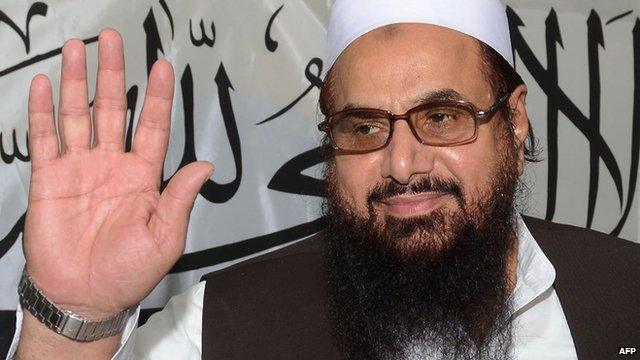Pakistan's Hafiz Saeed: Is 'charity leader' linked to Kashmir attacks?
- Published
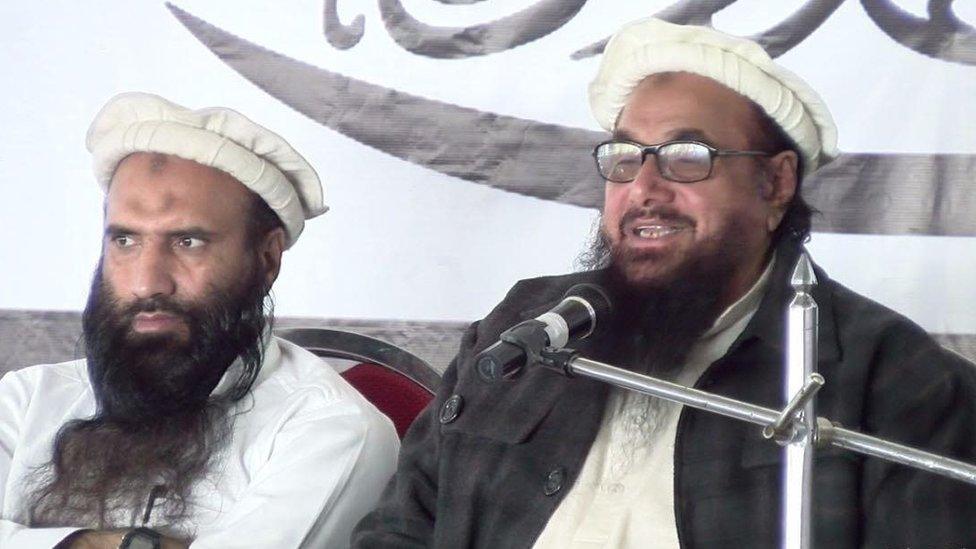
The head of a Pakistani charity accused of masterminding terror attacks has indicated he has inside knowledge of a deadly raid on India's military in disputed Kashmir.
It's the first time in several years that Jamaat-ud-Dawa head Hafiz Saeed or any other jihadi leader in Pakistan has made such remarks.
So why is he able to make such comments so openly?
What did he say?
Hafiz Saeed was addressing hundreds of Jamaat-ud-Dawa activists at an "orientation session" on Wednesday in Muzaffarabad in Pakistan-administered Kashmir. The charity's activities include running schools and hospitals.
Hafiz Saeed said that four "mujahideen" attacked an Indian military camp in the Jammu region on Monday, and had "returned safely, having suffered not a scratch".
"They say they cleaned up 10 rooms and killed 30 soldiers, and destroyed the entire camp."
Indian media reported that three "labourers" had been killed in a night time attack at a camp for the General Reserve Engineer Force in the Akhnoor area, near the border with Pakistan.
"The heavily armed terrorists went on the rampage for almost an hour. Eyewitnesses said they opened fire indiscriminately," India's NDTV channel reported.
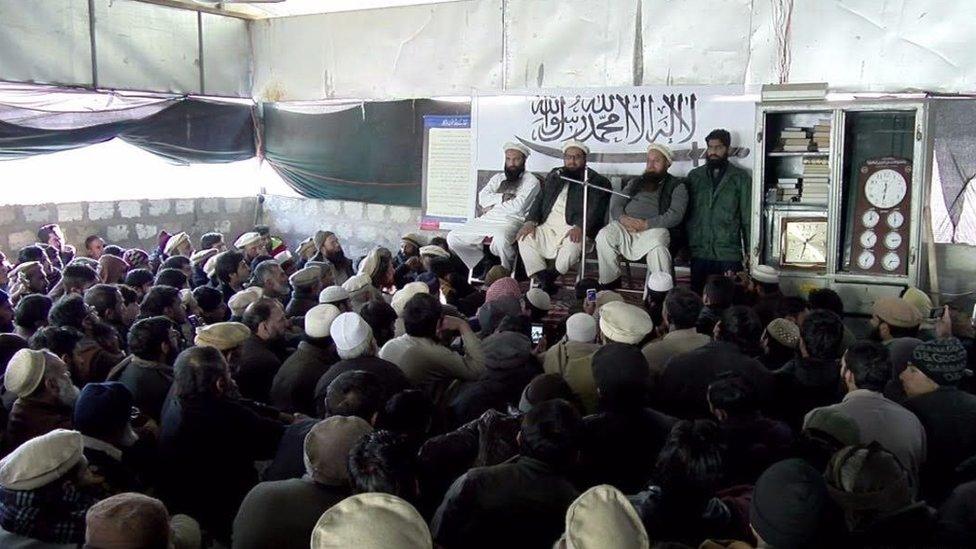
Hafiz Saeed told his audience that jihad (holy war) was the only way to liberate Kashmir from India, and that it was the religious duty of people in Kashmir and Pakistan to take part.
He described the attack as an example of the "character of the partisans of the Prophet".
"This is the surgical strike," he said - an apparent sideswipe at India's largely discredited claim of having carried out "surgical strikes" on militant camps on Pakistan's side of the border in late September.
He did not say whether the Akhnoor attackers were linked to his organisation, or which bases they "returned to safely".
Why speak now?
Kashmir-focused jihadi groups have become increasingly visible since tensions between Pakistan and India rose after militants killed 19 Indian soldiers at Uri in Kashmir in September.
Pakistan denied any link to the attack.
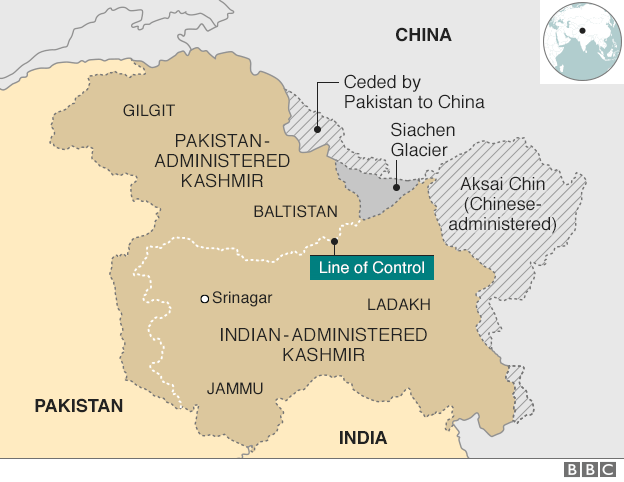
Hafiz Saeed, who founded the Lashkar-e-Taiba militant group, and other Jamaat-ud-Dawa leaders have been holding anti-India rallies in Pakistan as well as Kashmir.
Jaish-e-Mohammad, another Pakistan-based militant group, has also been holding open recruitment sessions in mosques across Pakistan.
In December, Hafiz Saeed addressed a rally in Quetta, in which he accused India of inciting violence in Balochistan province.
Groups involved in militant attacks in Indian-administered Kashmir have kept a low profile since a ceasefire in 2003.
Their reappearance in the public domain coincides with a rise in protests in Indian-administered Kashmir and Pakistan's worsening relations with India and Afghanistan.
What is Hafiz Saeed accused of?
India and the US accuse him of masterminding the 2008 terror attacks on Mumbai.
The US has imposed sanctions on his organisation, saying the self-declared charity is a front for militant group Lashkar-e-Taiba and has offered a $10m (£5.87m) reward for his arrest.
Hafiz Saeed tells the BBC that Washington is unfairly targeting him
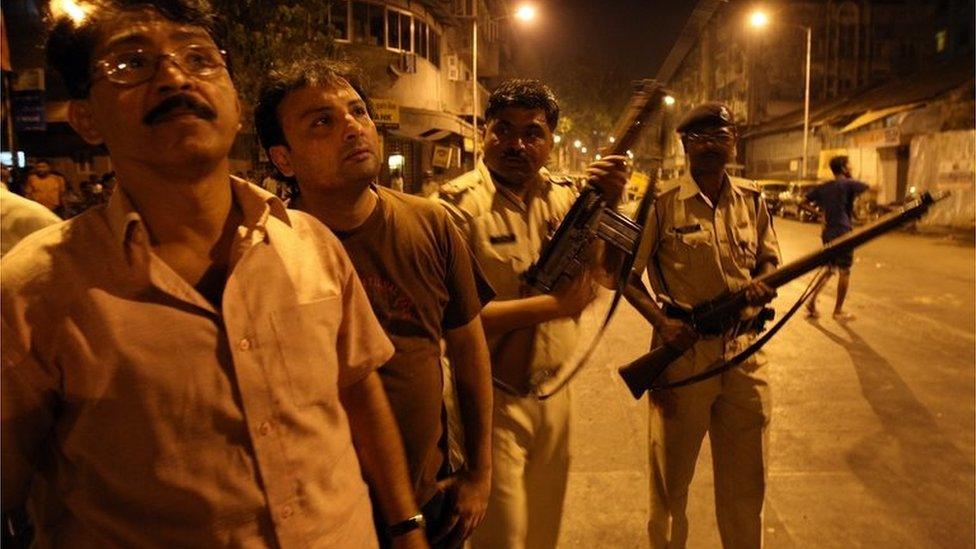
The Mumbai attack by Pakistani gunmen claimed 166 lives. Nine gunmen were also killed.
Pakistan also banned Lashkar-e-Taiba (LeT) in 2002, following an attack on the Indian parliament. But observers say it re-emerged as Jamaat-ud-Dawa which has continued to operate although it was put on a Pakistani terror watch list in 2015.
Hafiz Saeed has since founded another charity by the name of Falah-e-Insaniyat (Welfare of Humankind).
But many in Pakistan believe these charities are a front for LeT.
What does this say about Pakistan?
In Pakistan, Hafiz Saeed's remarks are being seen by observers as a veiled claim of involvement in attacks in Kashmir, and the aim appears to be "motivational", they believe.
Significantly, Pakistan's intelligence agencies have long been blamed for promoting a radical Islamist narrative and using militant groups as a bulwark to protect the military's financial and security interests.
Many fear an apparent crackdown on bloggers and human rights activists falls into this narrative and is meant to further radicalise elements in society.
In Pakistan militant groups often banned under international pressure are frequently allowed to re-emerge and operate freely under new names while their sympathisers troll secular social media activists with impunity.
- Published23 October 2016
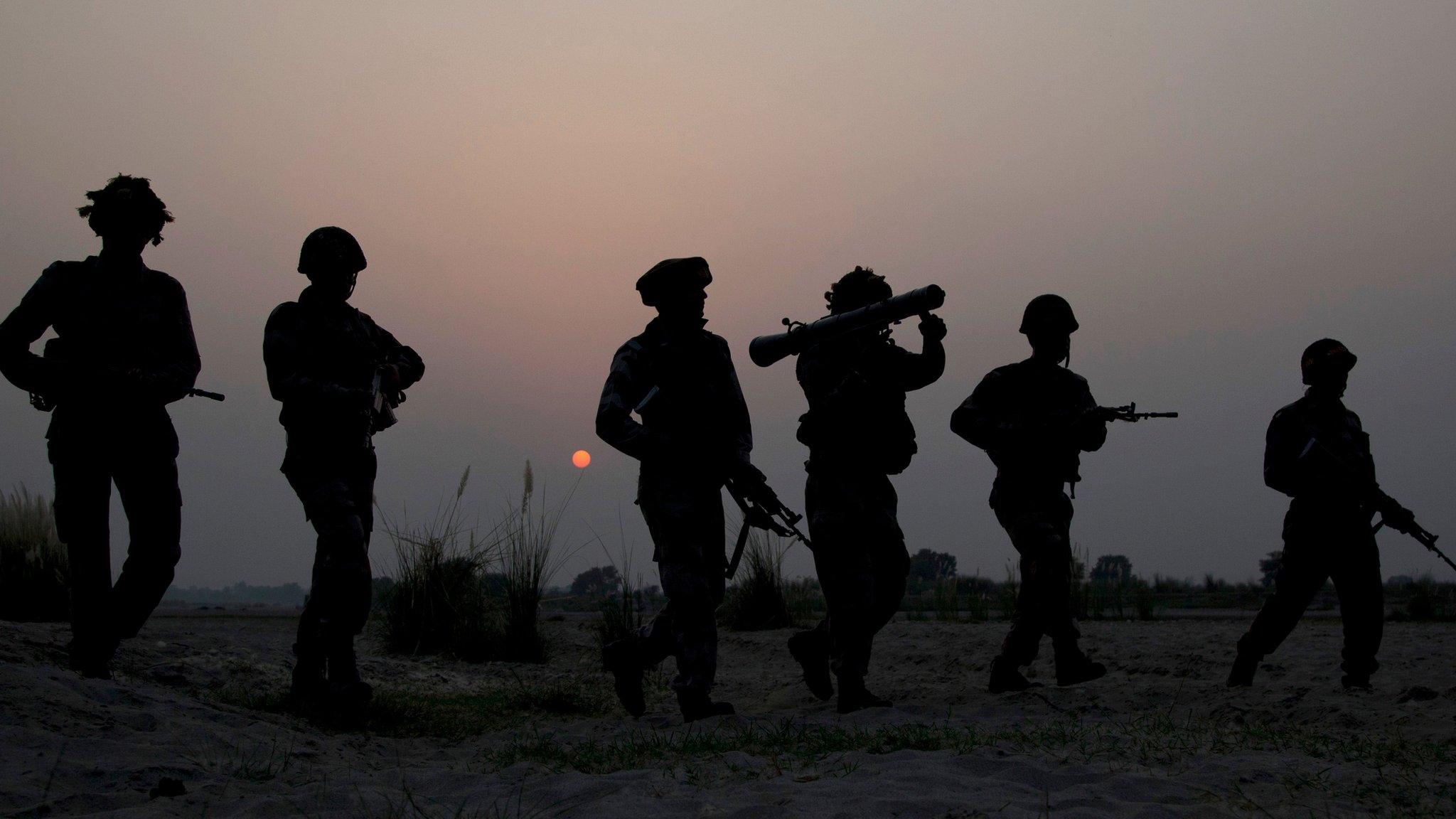
- Published30 June 2014
